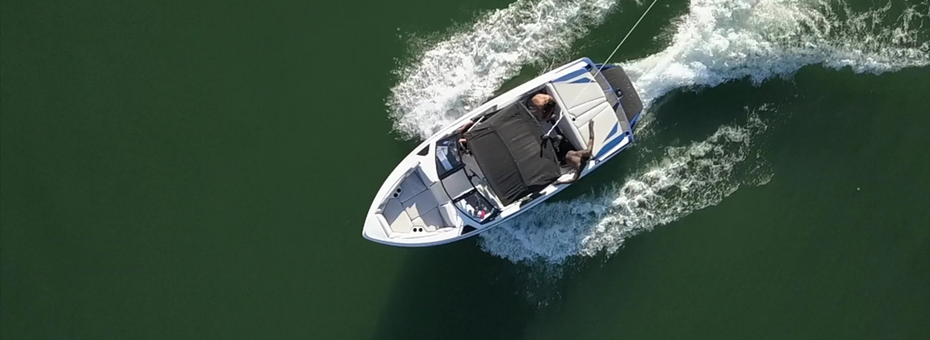(Katie Anderson’s new book Learning to Lead, Leading to Learn deeply mines the career of Toyota veteran Isao Yoshino for insights into working purposefully for learning, discovery, and improvement. Finding ways to learn from experience (whether ostensibly successful or not) is a core message of the book, and yesterday’s Lean Post featured an article sharing lessons from one failure. In today’s part two, Yoshino’s perseverant approach to finding value in every work experience shines through.)
Isao Yoshino worked for years developing a water-ski boat business for Toyota, and while the business ultimately failed, he learned many key lessons from this experience.
His saga spanned many years, starting with being assigned to the Marine Business Preparation Department in Tokyo City in 1992, discovering the size (and allure) of the U.S. water-ski business the following year, and, subsequently establishing a team to begin a feasibility plan for a business. In 1996, he proposed the plan to top management and received approval, moved to the U.S the following year, and saw Toyota begin manufacturing water-ski boats in 1998. Yet in 2001 Toyota decided to exit the U.S. boat business, and closed its plant late in the year.
Looking back on this endeavor, Yoshino asserts that it was not a complete failure, and that both he and Toyota were able to learn from this experience—bolstering his argument that ‘it’s only a failure if you don’t learn.”
Over the years the idea for this business evolved, shifting from an initial notion of simply selling Lexus engines to power US boats, to a more ambitious vision of producing and selling a higher-end (“Lexus-grade”) luxury boat to U.S. consumers. Toyota launched the venture with a U.S. partner, an arrangement that led to some of the factors behind its eventual demise. A slew of differences emerged over the course of producing the product—of in fact creating high-quality operations to produce it—that also played a key part in its demise.
Ultimately the tensions in the operations manifested in the products they were selling. As the book notes, these problems, “hindered Toyota Marine’s effectiveness in producing—and delivering—quality products—a direct result of its failure to fully develop the people in its organization.” In 2001 Yoshino was informed that top management would support it no longer.
After conducting hansei, or reflection, on this ambitious venture, Yoshino distilled his key learning into three main lessons (please note: the following passage is reproduced in its entirety from Katie’s book):
Organizational Lesson #1: Provide New Training and Coaching to Develop New Habits
Companies must provide thorough training and coaching support to ensure people understand company culture and values and are able to ingrain these cultural behaviors and shared values as habits. In this case, more training support—over a sustained period of time—was needed to teach TPS technical production principles and Toyota Way management capabilities, such as “go to gemba” and respect for people. Without the level of intentional support, as was provided to NUMMI and other sites, operations in Orlando just continued as they always had.
Organizational Lesson #2: Delegate Authority While Maintaining Visibility
When leaders are not located directly at the local production site, the company should delegate authority to the local site, while maintaining communication channels and visibility to the decisions. Yoshino reflects upon the degree to which micromanaging from afar can result in slow decisions—often based on assumptions rather than facts:
The company, or headquarters division, needs to make sure that specific authority can be delegated to the person who runs the project at the site.
In my boat project case, our headquarters did not want to delegate any authority on the technical decision-making to those of us in Orlando. The bad effect was that we were incredibly slow in making decisions and taking countermeasures when problems occurred. Leaders need to know that you cannot judge something based on the assumption. You need to see things by your own eyes before you make an important decision.
Organizational Lesson #3: Be Patient and Understand Differences
Leaders need to be patient to understand differences across cultures, regardless of whether those culture differences include local cultures, company cultures, or country cultures. As Yoshino reflects now:
When you do business with foreign people on foreign soil, you have to spend more time to listen to them and more time to discuss with them. People have different views, opinions, and preferences. Everyone is different from each other.
He further reflects that cultures can collide in unexpected ways. You might think that you have enough in common with your colleagues because you all work for the same company, but dissonance emerges because of variations in attitudes or practices across different locations in the same country or across different divisions of the same company:
People have different values in life and work as well. What makes people different differs depending on the culture people work in.
If you face something that initially feels odd or different (or wrong or abnormal) from your standard, it is recommended that you should not judge things right away, but look at it from different angles and take more time to draw any conclusions. And, to understand people’s mindsets, opinions, or characters, you need to listen to them more carefully until you have something for certain.
When looking back on these cultural differences, the gap in understanding of TPS, and his own contributions, Yoshino reflects that:
I now believe that this situation came primarily from a lack of communication and a lack of patience between the people involved, including myself, to understand each other. I know that good communication could not necessarily solve all the problems, but I believe good communication and the attitude to show respect to others could have greatly helped us to handle problems with a more coolheaded mindset.





